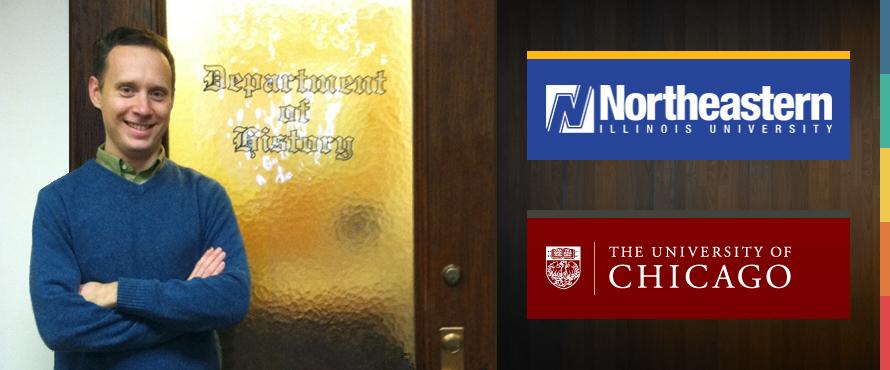News & Features
This past fall, I began a new life as a Ph.D. student in history at the University of Chicago. To become a fully funded historian-in-training at one of the world's top programs was hardly something I would have predicted for myself just a few years ago. I owe this unique opportunity to the rigorous and nurturing experience that I had as an MA candidate at Northeastern Illinois University.
In 2004, I was finishing my post-baccalaureate teaching certification at NEIU, and enrolled in history courses as part of my preparation for teaching high school social studies. This final round of coursework would prove to be transformative. Professors Susan Rosa and Andrew Shankman exposed me to a world of intellectual passion and critical inquiry that would change the way I thought about history, define the way I would teach it in my career as an educator, and plant a seed of curiosity that would not be satisfied until I was on the path to becoming a historian myself. Professor Shankman suggested that I apply for the MA program in history at Northeastern and I accepted his challenge.
At that point, I was already a full-time history teacher at Von Steuben High School, where I taught for the next decade. Northeastern's history program—with evening graduate courses pursued at a manageable pace, and a cohort made up mainly of other teachers—was the perfect fit for a high school teacher. The dynamic interplay of my two worlds paid enormous dividends; being a grad student made me a better teacher and being a teacher made me a better grad student.
In class after class, I was pushed to engage with the discipline of history at the highest level. Whether theorizing my way into a gendered analysis of the antebellum Illinois frontier for Professor Morgan, preparing a field exam list on racism in Atlantic history for Professor Miller, inspecting translations of Cicero's orations for Professor Schiffman, or unraveling the legal history of American citizenship for Professor Schmeller, I was consistently expected to read, write, and argue as a full-fledged member of the scholarly community. The rigor and seriousness of my history coursework at Northeastern whetted my appetite for further academic challenges.
I completed my MA in History in 2010, and soon realized that my teaching career at Von Steuben, while still fulfilling, was missing the special energy that fed it while I was enrolled at Northeastern. Then I received news that an article of mine, which had originated in Professor Morgan's seminar, had been reviewed and accepted for publication in The Journal of the Illinois State Historical Society. The seed that had been planted by those history courses at Northeastern was now bearing fruit. When I decided to apply for PhD programs in the fall of 2012, each of my former professors at Northeastern took time to meet with me, and gave me earnest, thoughtful, and constructive advice—as well as the recommendations that strengthened my application.
When I arrived on campus at the University of Chicago, the prestige of the place—the ivy, the gothic architecture, the Nobel Prizes—could not have been more intimidating. But once I sat down in my first colloquium and began to discuss history, I relaxed. Northeastern Illinois University had given me everything I needed to face this new challenge.








